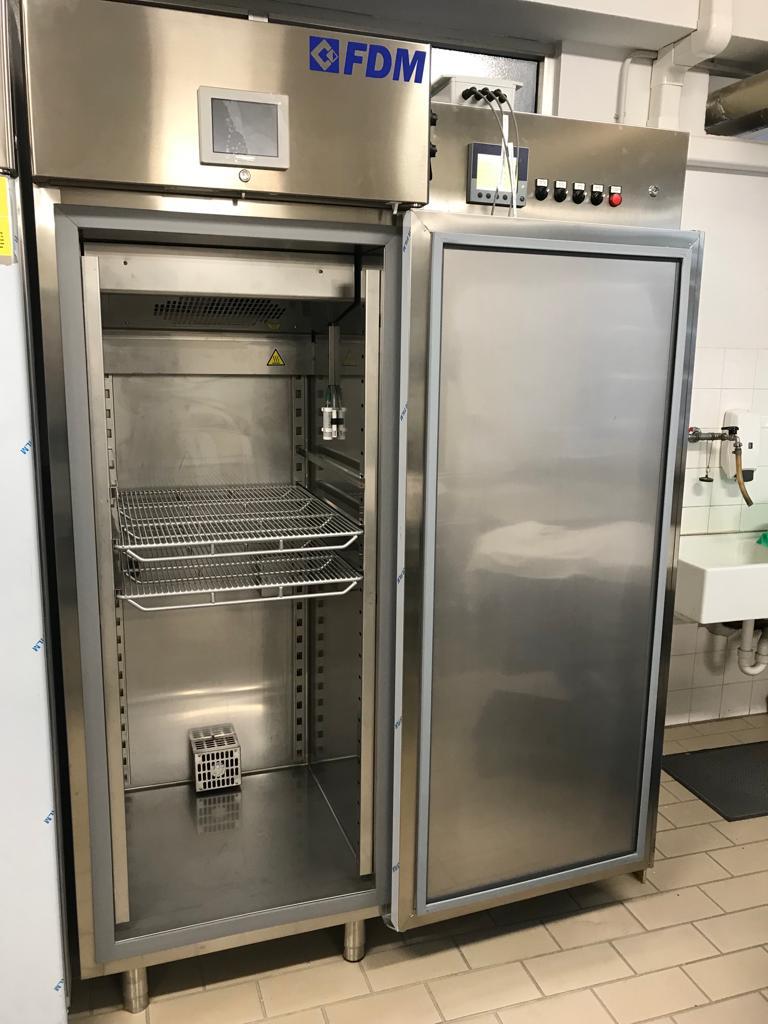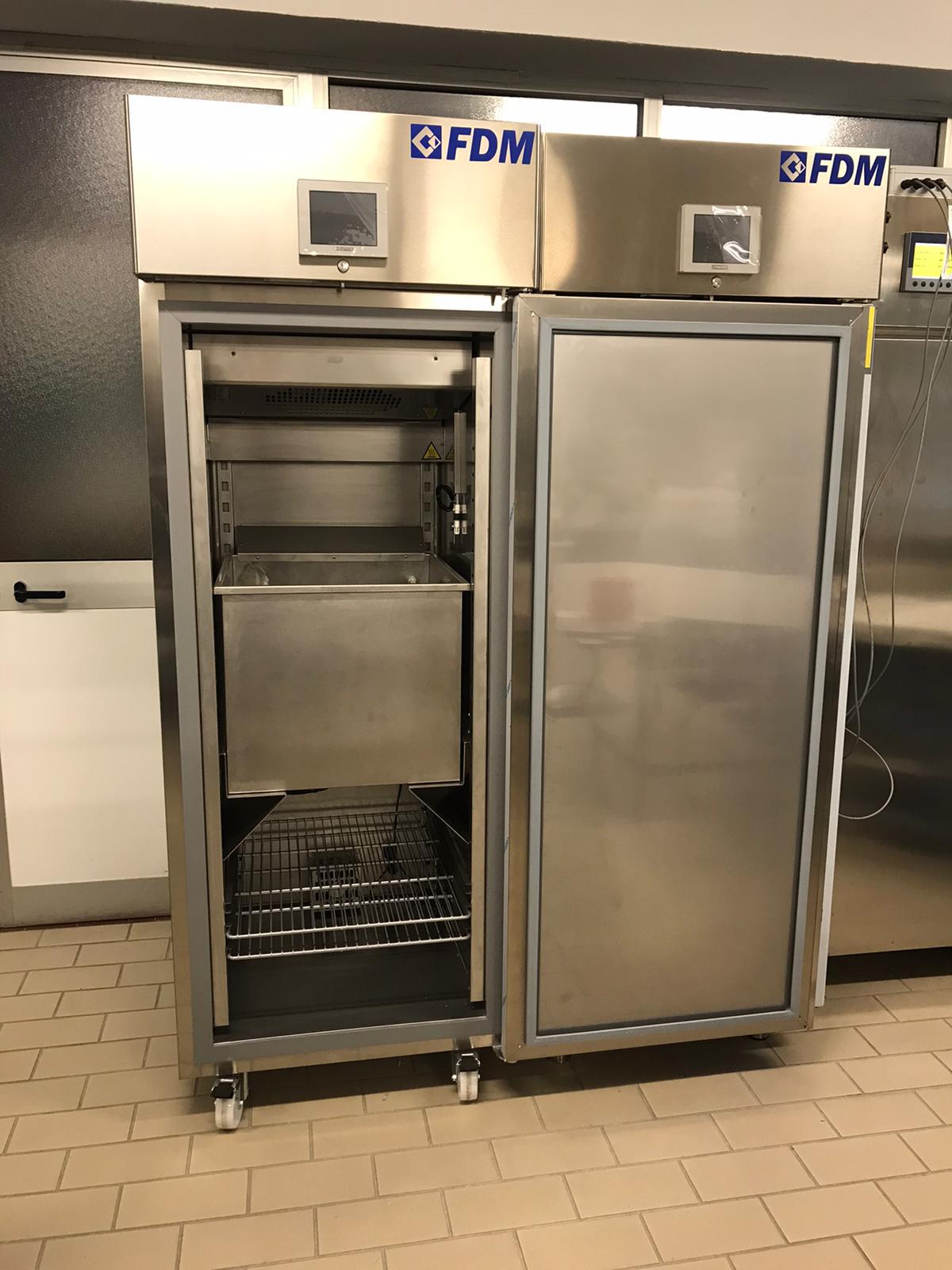Climatic
Durability is a fundamental property of reinforced concrete structures. The determination of the corrosion resistance of the reinforcement induced by carbonation is crucial in this context. Therefore, it is important to evaluate the carbonation behavior of the cementitious conglomerate.
Facilities

Accelerated carbonation chamber

Chamber for qualification tests of composite materials for structural use
Accelerated carbonation chamber:
CLIMATIC CABINET 0/+70°C (530 LITERS net) in stainless steel. CO2 regulation system according to EN 12390-10, safety alarm system for measuring high CO2 concentration.
Chamber for qualification tests of composite materials for structural use:
CLIMATIC CABINET 25/+70°C (530 LITERS net) in stainless steel. Internal flooding system of the room according to EN1348-2007.
The purchase of the two climatic chambers stems from the need to test the durability of traditional (concrete) and innovative materials (FRP – Fiber Reinforced Polymer systems; FRCM – Fiber Reinforced Cementitious Matrix systems; CRM – Composite Reinforced Mortar systems; FRC – Fiber systems Reinforced Concrete) to ensure the structural safety over time of the materials making up the building and civil works.
Experimental tests
Determination of the carbonation resistance of concrete – Accelerates carbonation method:
Durability is a fundamental property of reinforced concrete structures. The determination of the corrosion resistance of the reinforcement induced by carbonation is crucial in this context. Therefore, it is important to evaluate the carbonation behavior of the cementitious conglomerate. In order to speed up the testing time, a testing methodology that accelerates the carbonation of concrete is used. Specifically, this is achieved by exposing concrete samples to increased levels of carbon dioxide for 70 days. In fact, samples are placed inside the storage chamber with carbon dioxide concentration by volume of 3.0±0.5%. The temperature and relative humidity inside the storage chamber are 20±2°C and 57±3%, respectively. Carbonation depth assessments should be performed after 7, 28, and 70 days. Based on the evaluations at these scheduled time intervals, it is possible to determine the carbonation rate in .
Qualification testa of composite materials for structural use:
The Guidelines relating to the qualification of the four main types of composite materials for structural use – FRP, FRCM, CRM and FRC – were approved in 2019 and between 2020 and 2022 there is the obligation for all manufacturers to be in possession of the CVT – Certificate of Technical Assessment – to be able to market your product in Italy. The issue of the CVT is subject to the execution of qualification tests.
For all composite materials for structural use, in addition to mechanical characterization tests, durability tests are foreseen which include:
– cyclic tests of freezing and thawing;
– artificial aging tests;
– thermal stress behavior tests;
– resistance to humidity, resistance to alkaline environments;
– resistance to saline environments.



